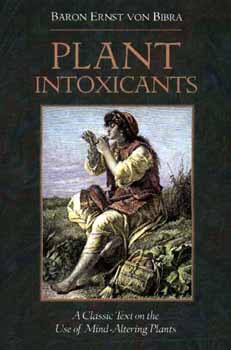
BACK COVER #
Plant Intoxicants is a pioneering study of psychoactive plants and their role in society. Initially published in Nuremberg in 1855, it is one of the first books to examine the cultivation, preparation, and consumption of the world's major stimulants and inebriants. Drawing on his own travel experiences as well as the writings of his predecessors, Baron Ernst von Bibra (1806 - 78) devotes a full chapter to each of seventeen plants, ranging from such mild stimulants as coffee and tea, through tobacco and hashish, to powerful narcotics and hallucinogens such as opium and fly agaric (Amanita muscaria).Written in a lively style, Plant Intoxicants paints a fascinating panorama of the worldwide use of psychoactive plants in the nineteenth century. Von Bibra brings to the subject a keen intellect, an engaging sense of humor, and a refreshing open-mindedness unusual for his, or any, time. While frankly acknowledging and describing in vivid detail the depravities of the opium den, he holds the opinion that intoxicants, when used in moderation, are "gifts bestowed by the gods on man to alleviate his misery and reconcile men with one another".
Complementing and enhancing von Bibra's work is a full annotation by his modern-day couterpart Jonathan Ott, an ethnobotanist and the author of Ayahuasca Analogues and Pharmacotheon. A foreword by Martin Hasencier, the world's foremost authority on von Bibra's life and work, supplies a biographical sketch and places Plant Intoxicants at the vanguard of popular scientific writing on the role of plants in human culture.


